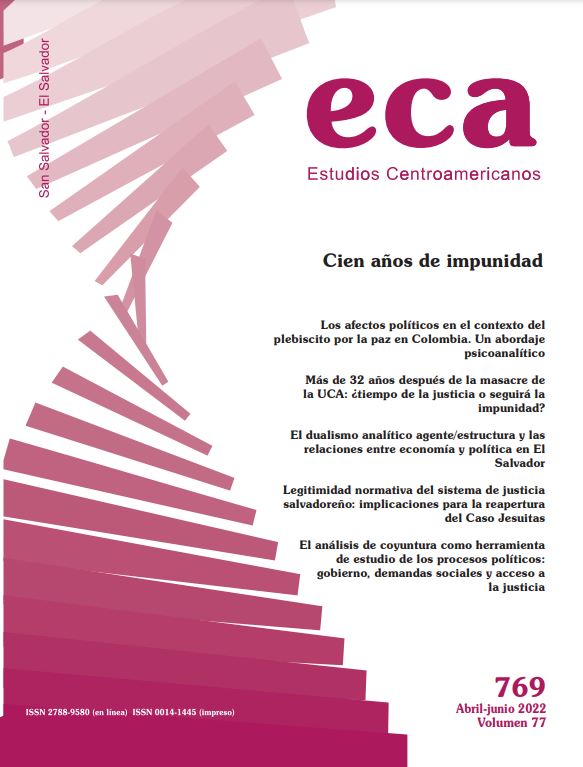Abstract
The purpose of the present article was to inquire, from a psychoanalytic point of view, the logic that underlies the affects present in 43 semi-structured and in-depth interviews conducted in the city of Medellín, in the context of the political negotiation process of the armed conflict and the peace agreement between the Colombian government and the Fuerzas Armadas Revolucionarias de Colombia (FARC-EP), particularly after the Plebiscite for Peace of October 2nd, 2016. This qualitative research, carried out within the context of the project “Psychosocial barriers for the construction of peace and reconciliation in Colombia”, had a phenome- nological-hermeneutical approach, from where we analyzed the content of the interviews based on the psychoanalytic theory of affects. This allowed the design of a matrix based on three main categories: subject/subjectivity, Other/speech and enjoyment, from which eleven affects emerged: love, hatred, igno- rance, indifference, hope, fear, indignation, resentment, shame, modesty and disgust. We found that fear is the main affect which links all the other affects, and is a starting point for the manipulation of people, operating as an effective way to arouse other affects such as hatred. These affects have anguish at their core, stemming from what Freud called “the original helplessness”, that maintains a rela- tionship with the Other, who can be seen as a source of protection or a threat. This resulted in the appearance of affects that touch reality such as disgust, shame and modesty; the latter two considered necessary for one’s ability to think, as well as in producing hope, social bonding and the building of paths that lead to peace.
ECA Estudios Centroamericanos, Vol. 77, No. 769, 2022: 21-43.

This work is licensed under a Creative Commons Attribution-NonCommercial-NoDerivatives 4.0 International License.
Copyright (c) 2022 ECA. Estudios Centroamericanos






